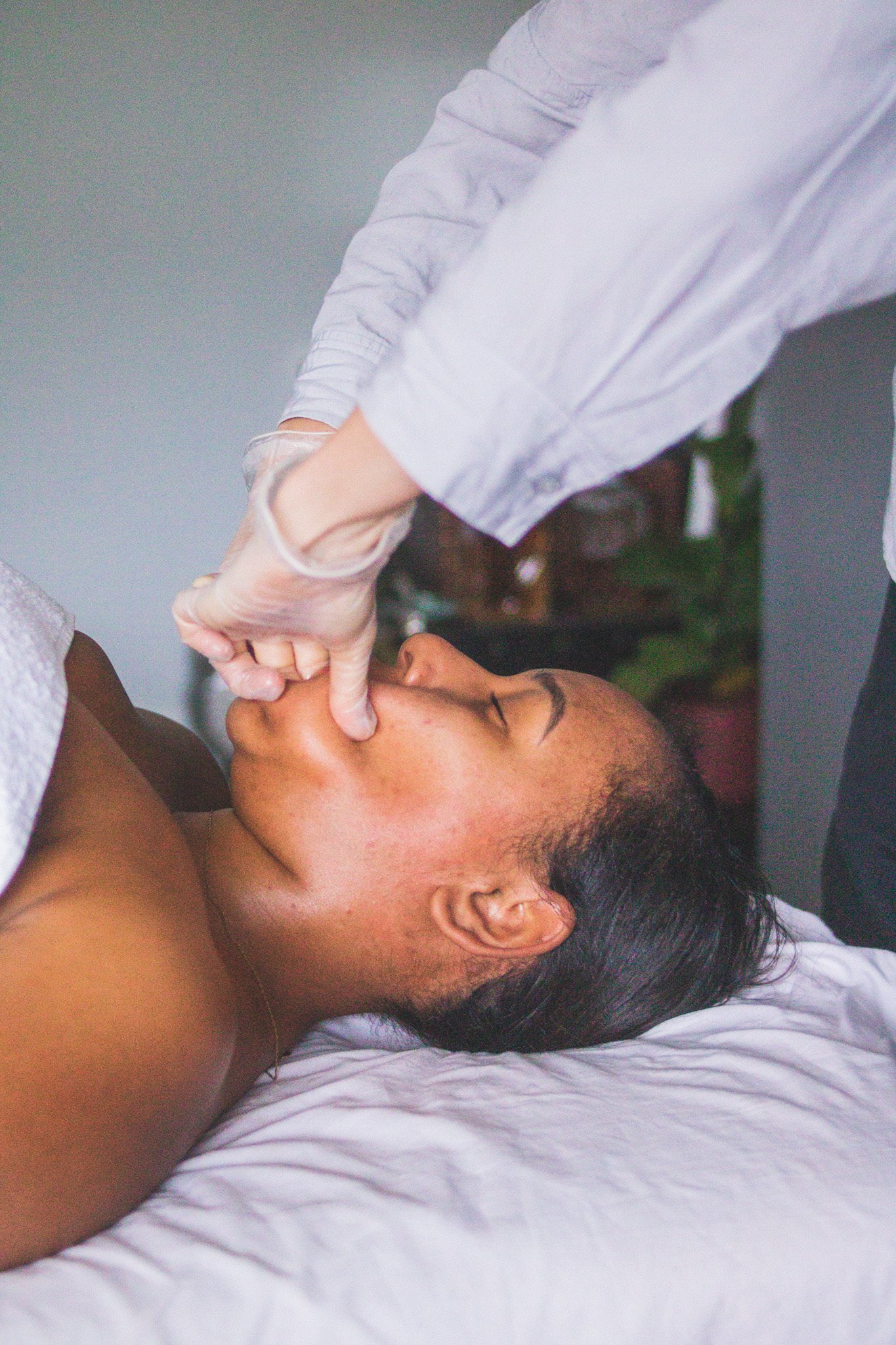Does Buccal Massage Help TMJ?
"Does Buccal Massage Help TMJ?" This question often lingers in the minds of individuals seeking relief from the discomforts of Temporomandibular Joint (TMJ) disorder.
As a Brazilian Lymphatic Specialist based in Bristol, I have witnessed the transformative effects of buccal massage on TMJ patients. In this comprehensive blog post, we will explore the intriguing relationship between buccal massage and TMJ, delving into the benefits, scientific evidence, testimonials, and its advantages compared to other TMJ treatments.
Understanding TMJ and Buccal Massage
TMJ is a condition affecting the temporomandibular joint, which connects the jawbone to the skull. It manifests through various symptoms such as jaw pain, clicking or popping sounds when opening or closing the mouth, difficulty chewing, and headaches. Causes can range from teeth grinding (bruxism) and jaw misalignment to stress and muscle tension.
Buccal massage, a therapeutic technique, involves gentle manipulation of the muscles and tissues in the cheeks and mouth. It has gained popularity as a non-invasive approach to addressing TMJ-related issues.
How Buccal Massage Works for TMJ
During a buccal massage session, a skilled practitioner applies controlled pressure and circular motions on the cheeks, jaw, and mouth areas. This technique aims to relax the muscles, reduce tension, and promote better circulation in the region. By targeting the facial and jaw muscles, buccal massage can alleviate TMJ symptoms and provide much-needed relief.
Scientific Evidence and Research
The effectiveness of buccal massage for TMJ has intrigued researchers, leading to scientific investigations to validate its benefits. While research on this specific topic is still emerging, early findings show promising results. A study published in the Journal of Bodywork and Movement Therapies revealed that buccal massage led to a significant reduction in pain and improved jaw functionality in individuals with TMJ disorder.
Though limited, these initial studies provide a glimpse of buccal massage's potential impact on TMJ, warranting further research and exploration.
Testimonials and Case Studies
As a practitioner of lymphatic drainage and buccal massage, I have witnessed firsthand the positive outcomes experienced by my clients. Let me share the inspiring stories of two individuals who found relief from their TMJ issues through buccal massage:
Case Study 1: Emma's Journey to TMJ Relief
Emma, a 32-year-old woman, had been struggling with jaw pain and tension headaches for years. The discomfort affected her daily life and often interfered with her ability to enjoy meals. After trying various treatments with minimal success, Emma turned to buccal massage.
Over the course of a few sessions, Emma noticed significant improvements in her TMJ symptoms. The jaw pain diminished, and she experienced fewer headaches. Additionally, she found that her jaw movements became more fluid, allowing her to chew and speak without discomfort.
Case Study 2: Mark's Triumph over TMJ
Mark, a 45-year-old man, had been dealing with TMJ-related issues due to stress and bruxism. The constant clenching and grinding of his teeth had led to chronic jaw pain and tension. Desperate for relief, he sought alternative therapies and discovered buccal massage.
After several sessions of buccal massage, Mark's TMJ symptoms improved dramatically. The tension in his jaw significantly reduced, and he noticed a decrease in teeth grinding. Moreover, he felt more relaxed and noticed a positive impact on his overall well-being.
Comparison with Other TMJ Treatments
While traditional treatments like medication and physical therapy have their merits, buccal massage offers unique advantages for TMJ relief:
Non-Invasive Approach: Unlike surgical interventions, buccal massage is non-invasive, making it an attractive option for those seeking a gentler treatment.
Holistic Benefits: In addition to addressing TMJ symptoms, buccal massage offers overall relaxation, improved blood flow, and facial rejuvenation.
Focus on Root Causes: Buccal massage targets the muscles and tissues in the face and jaw, aiming to address the root causes of TMJ rather than solely treating the symptoms.
Personalized and Tailored: As a Brazilian Lymphatic Specialist, I work with each client individually, tailoring buccal massage sessions to their specific TMJ concerns.
In conclusion, the question "Does Buccal Massage Help TMJ?" can be answered with a resounding "Yes!" As a Brazilian Lymphatic Specialist based in Bristol, I have seen remarkable transformations in my clients' lives through this therapeutic technique. The scientific evidence, combined with the powerful testimonials, supports the potential of buccal massage as a holistic and non-invasive approach to alleviate TMJ symptoms.
If you're seeking a natural and personalized solution to your TMJ concerns, consider exploring the benefits of buccal massage. It could be the path to a pain-free and more relaxed jaw, allowing you to embrace life without the limitations of TMJ discomfort.






